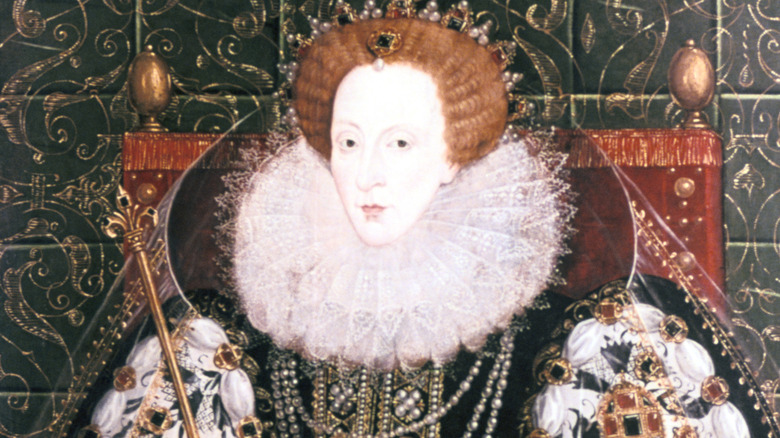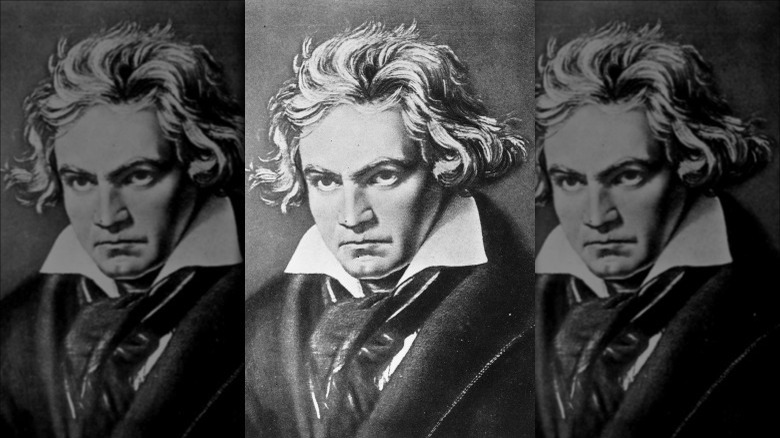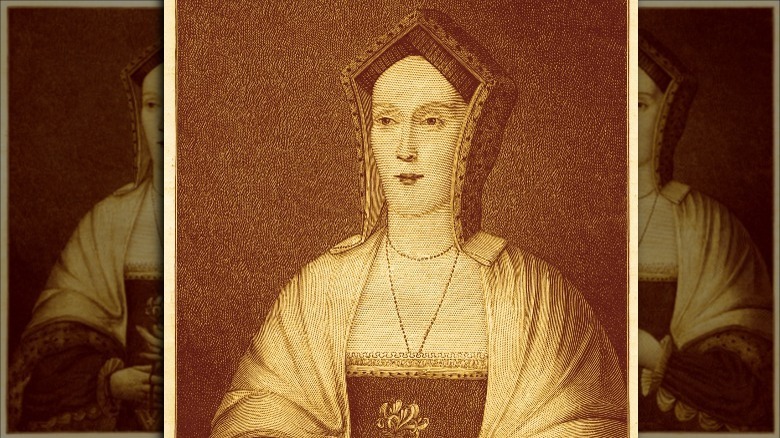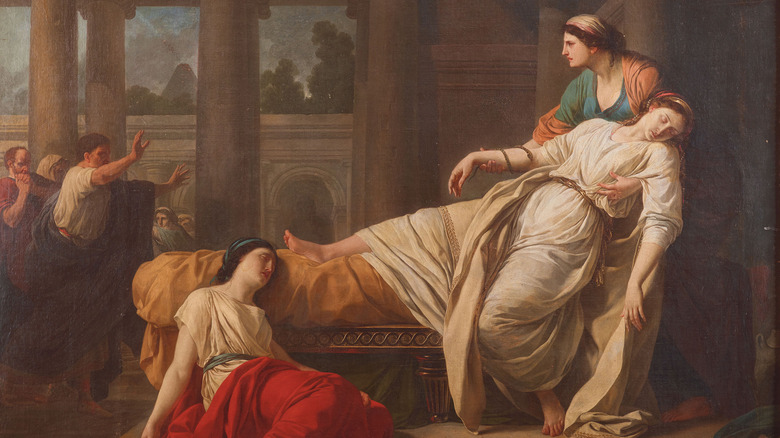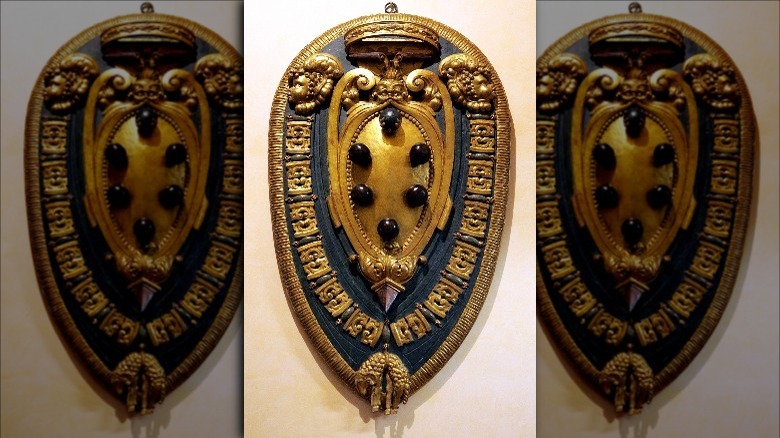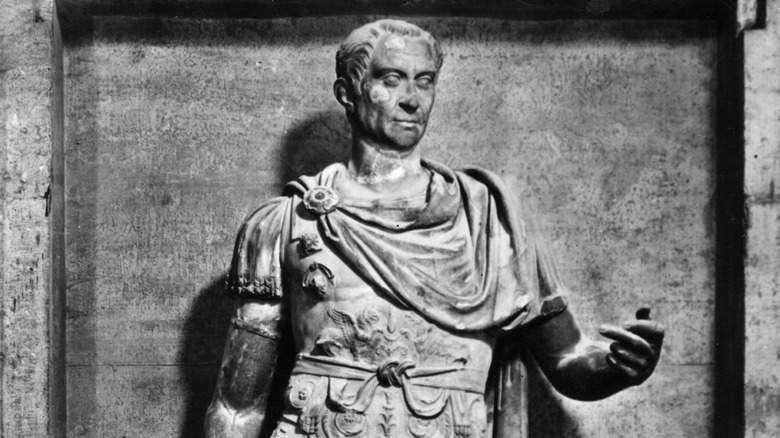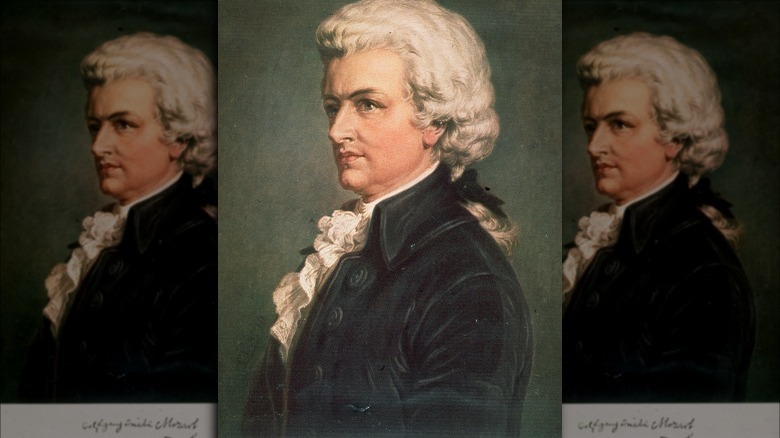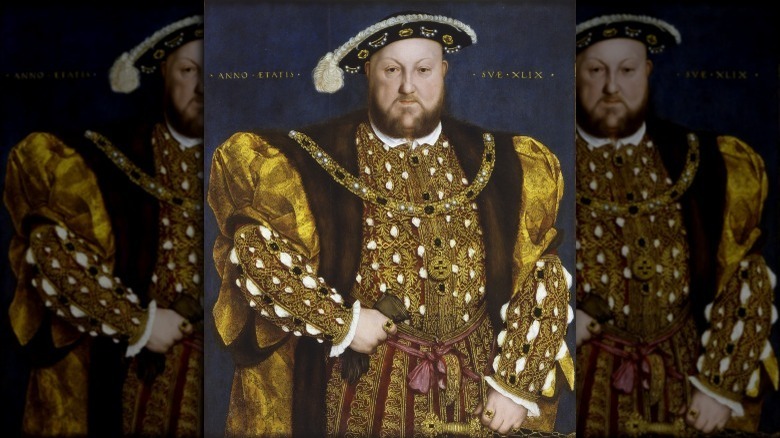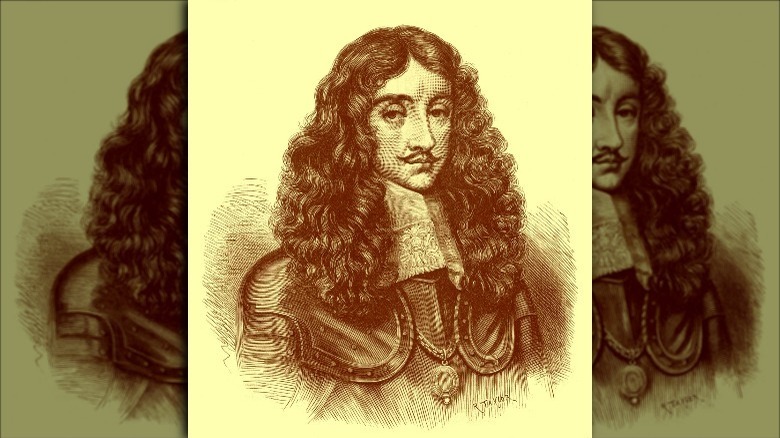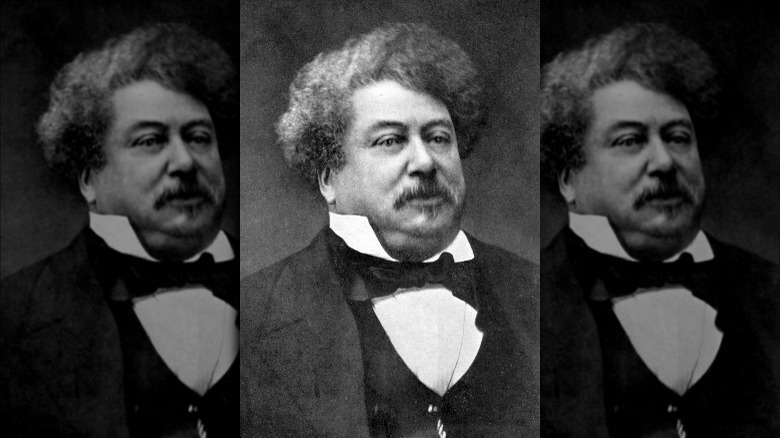Famous Historical Families That Died Out
We tend to think of families as eternal. Generations come and go, but we generally imagine that there will be many more generations to bear a name.
But families do sometimes go extinct, in the sense that no one bearing the family name survives, even if the maternal line or another branch of the larger gene pool continues (after all, we're ultimately all related). Considering that recorded history stretches back several thousand years, it isn't that surprising that a lot of famous families have died out and now exist only as historical records. High rates of infant mortality combined with plagues, famines, and wars make it somewhat surprising that any ancient families have survived at all.
Still, it's startling to realize that some of the important historical figures we learn about have no direct descendants carrying their name. Here are some of the surprising famous historical families that died out.
The Beethovens: A rapid decline
Even if you're not a fan of classical music you probably know the name Beethoven. His famous Fifth Symphony is instantly recognizable, and he is generally regarded as one of the greatest composers of all time.
According to researcher Joseph Schmidt-Görg, the Beethoven name stretches back to at least the 15th century. Ludwig was born in 1770, and as Popular Beethoven reports, the famous composer never married nor fathered children. Only one of Ludwig's brothers had children — Kaspar fathered a son, Karl, whom the composer fought to take full custody of.
According to Classic FM, Beethoven's attempts to be a father figure to Karl went poorly. Karl attempted suicide several times, and eventually joined the army in what many believe was a desperate attempt to get away from his uncle. Karl eventually had five children, including one son, whom he named Ludwig.
Ludwig became a bit of a grifter, pretending to be the famous composer's grandson instead of his grand-nephew and sometimes posing as a baron. He was eventually forced to flee to America to evade arrest, where he changed his name to Louis Van Hoven. Ludwig/Louis had one son who survived into adulthood, Karl Julius. Karl Julius lived an unremarkable life and died in 1916 of peritonitis after an unsuccessful surgery, ending the Beethoven line forever.
The Plantagenets: From royalty to traitors
The sprawling Plantagenet family encompassed several distinct houses, including the Lancasters and Yorks, who fought the Wars of the Roses over the English throne in the 15th century. Britannica notes that the name Plantagenet is something of a fake-out, since the powerful noble families in France at that time didn't actually use surnames. But we have to call them something, so the name has stuck for centuries.
The Plantagenets held the English throne from 1154 to 1485, when Henry Tudor defeated the last Plantagenet king, Richard III, and seized the throne. But the family continued to lurk on the sidelines, hoping for a chance to reclaim the crown they saw as rightfully theirs.
However, the Plantagenets dwindled. Tudors Dynasty explains that by 1541, the last living Plantagenet was the only daughter of George Plantagenet: Margaret Pole, Countess of Salisbury. When her son, Reginald Pole, openly agitated for the deposition of King Henry VIII, the king could not strike back directly because Reginald was outside of England, so he attacked the Pole family. Tudor Society reports that Margaret was arrested in the crackdown and after some hesitation due to her position and popularity, Henry had her executed and permanently ended the Plantagenet name.
The Ptolemies: The worst people in the ancient world
The name Ptolemy might not be immediately recognizable, but you probably recognize one of the most famous members of the family: Cleopatra.
According to Britannica, Ptolemy I Soter was one of Alexander the Great's generals, and he wound up ruling Egypt in the late 4th century BC. Strange History explains that Ptolemy and his first few descendants were capable rulers, but that the family slowly declined into violence and insanity, taking up murder and betraying each other to pass the time. In fact, the infamous Cleopatra may have been the worst of them all — she is suspected of murdering both of her brothers before she seduced two of the most powerful men in ancient Rome, Julius Caesar and Mark Antony.
Of course, that backfired on her when Augustus invaded Egypt in his war against Antony. Cleopatra committed suicide rather than be captured or tortured. Her four children survived, but one by one they were killed off by the Romans, except her daughter Cleopatra Selene, who was married to Juba II, King of Numidia. Cleopatra Selene's son, Ptolemy of Mauretania, inherited the Mauretania throne and seemed to be doing pretty well until he was executed by Roman Emperor Caligula, and that was it for the Ptolemies.
The Medicis: Fallen power brokers
Back in the Middle Ages, Italy wasn't so much a single country as a collection of loosely affiliated, bickering city-states, and the Republic of Florence was one of the most prominent. It was there that the Medici family established the Medici Bank in the early 15th century. PBS explains that with a direct connection to the pope in Rome, the bank soon came to dominate business everywhere, making the Medici family one of the most powerful in the world. It was further strengthened by merging with royal families and producing several popes.
History notes that the Medici family entered serious decline in the 18th century, in part because Florence and the surrounding region began to lose economic and cultural importance. The last Medici grand duke, Gian Gastone, died without a male heir in 1737, but one more Medici remained: the Electress Palatine Anna Maria Luisa de' Medici.
According to Nature, Anna Maria was long thought to have died of syphilis in 1743, but a recent exhumation of her body cast doubt on that theory as her body showed no signs of the disease. However she died, when she breathed her last breath, she took the family name that had ruled Florence for 300 years with her.
The Julio-Claudians: The first Roman emperors
In ancient Rome, gentes were large family groups and were an important aspect of the Roman social structure. Over time, being part of an old gens meant you were part of the political class and most likely wealthy and powerful. According to the Collector, the gens Julia and gens Claudia were ancient, and had merged by the time Julius Caesar seized power. The Julio-Claudian dynasty officially began when his nephew Augustus became the first emperor in 27 BC, because Caesar was never officially an emperor.
Britannica explains that the dynasty lasted until 68 AD, when Emperor Nero was assassinated. By that time, the importance of the gentes had dulled, but the Julio-Claudian family continued on for some time, albeit slowly fading from importance. The last time we see a member of the Julio-Claudian family is 131 AD, during the rule of Emperor Hadrian, when a man named Sergius Octavius Laenas Pontianus became consul.
People Pill explains that Pontianus was distantly related to Tiberius, the second Julio-Claudian emperor, through his grandmother. After 131 AD, there's no further mention of Pontianus or any other member of the Julio-Claudian family.
The Washingtons: The father of the U.S. had no kids
It's been said that George Washington could have made himself King of America if he'd wanted to. In the wake of his victory in the Revolutionary War, he was certainly the most popular man in the country, winning two elections more or less unanimously.
Washington's family history stretches back to 12th century England. Historian E. R. Sawyer explains that a knight named William de Hertburn took possession of a manor called Wessyington and thus his family name became de Wessyington, which over time was corrupted into Washington.
The family survived for centuries, but ended shortly after George Washington's death. NBC News reports that Washington had no biological children, only an adopted son, Parke Custis. Washington's brothers had children, but over time those lines ended as well. While there are certainly people related to George Washington alive today, none of them are his or his brothers' direct descendants, making his direct line extinct.
The Lincolns: A legitimacy dispute
Like everyone in the U.S. who isn't of Indigenous roots, the family that eventually produced our 16th president came from somewhere else. Norfolk Churches explains that the Lincoln family came from Hingham, a village near Norfolk, England, where they lived until the 17th century. Norfolk's American Connections reports that Samuel Lincoln traveled from England to Massachusetts in 1637.
The Lincoln family doesn't make much appearance in the history books until Abraham Lincoln's political career in the mid-19th century, and then it doesn't factor much after that either. The Chicago Tribune explains that Abraham and Mary Todd Lincoln had four sons, but that only Robert Todd Lincoln lived to adulthood. Robert Todd had three children, but as he outlived his only son, the Lincoln name died with him in 1926.
Robert Todd's youngest daughter, Jessie, married Warren Beckwith in 1897, and they had a son named Robert Todd Lincoln Beckwith — the last direct descendant of Abraham Lincoln. When Beckwith passed away in 1985 without any children, that was it for the Lincoln Family.
Unless it's not. USA Today reports that a man named Timothy Lincoln Beckwith claims to be Beckwith's son by his third wife, and thus Abe Lincoln's great-great-grandson. But it seems not. Beckwith denied the claim and a court found that he'd undergone a vasectomy and thus could not be Timothy's father.
The Mozarts: Lasted longer than you think
Wolfgang Amadeus Mozart is one of the most famous composers in history. Even if you can't hum any of his compositions, you probably know the name. It's become synonymous with a certain kind of social-misfit genius thanks to Tom Hulce's performance as Mozart in the film "Amadeus."
It's probably not too surprising that Mozart's family dates back centuries, but since you don't meet too many people named Mozart these days, you might not realize that the family persisted well into the 20th century.
The Seattle Times reports that Mozart and his wife Constanze had six children, but that only two — Karl and Franz Xaver — survived to adulthood. Karl lived a quiet life with few notable achievements but Franz Xaver became a notable composer and musician, albeit not anywhere near his father's league. Neither son had children of their own, and the descendants of Wolfgang Amadeus Mozart's sister Nannerl died out in 1919, which made many think the family had gone extinct.
But historian Graeme Donald reports that a woman named Karoline Grau (née Mozart) was the great-great grandniece of Mozart's father, Leopold. Grau passed away in 1965 and the Mozart family officially ended.
The Tudors: A troubling lack of heirs
Technically, the Tudors were usurpers. History Extra explains that Henry VII claimed the crown when he won the Battle of Bosworth Field, ending the civil war known as the Wars of the Roses, but that his claim to the throne was through an illegitimate line and plenty of people had stronger claims.
Questions of legitimacy were a persistent theme for both Henry VII and his son, Henry VIII. Henry VII's oldest son Arthur died young, making Henry VIII the king. Britannica reports that Henry VIII's reign began with optimism, but as he aged and failed to produce a son, his physical health declined and he became obsessed with having an heir. He famously had six wives, executing two of them. His illegitimate son, Henry Fitzroy, died young, and his legitimate son, Edward VI (born to Henry's third wife, Jane Seymour), died when he was just 16 years old.
As Royal Central tells us, a period of chaos followed for both the Tudors and England. Lady Jane Grey reigned for nine days before being executed, and the crown passed to Edward's sister Mary. Mary reigned for five years but had no children, so when she died in 1558, the only Tudor left with a claim was her half sister Elizabeth. Although Elizabeth I reigned for 45 years and is remembered as one of the great English monarchs, she died childless, ending the Tudor line permanently.
The Stuarts: From royalty to Jacobites
When Elizabeth I died in 1603 without any children, the throne of England passed to her cousin, King James VI of Scotland, This made the Stuart family the royal family of both countries, as well as Ireland and Wales (which would eventually combine to become the United Kingdom). James VI's ascension was not without controversy, but, as BBC History explains, it was a remarkably smooth transition of power despite several arguments against its legality.
Unfortunately, that was probably the last time the Stuarts enjoyed anything that could be described as "smooth." Britannica reports that James' son, Charles I, was executed in 1649 when Oliver Cromwell and the Protectorate came to power. It took 11 years for Charles I's son, Charles II, to regain the throne in 1660, which he held until his death in 1685. Charles II's brother, James II, inherited the throne but was deposed in the Glorious Revolution in 1688, in favor of his daughter, Mary, and her husband, William.
After Mary's death, her younger sister Anne took the throne and held it until 1714, when she died childless. The Stuarts were still around but were legally prevented from taking the throne, so they spent the next 90 years or so as pretenders known as Jacobites. Those years weren't great for the family, however, and English Monarchs tells us that they dwindled down to one: Henry Benedict Stuart, a cardinal in the Catholic Church and pretender to the throne in his spare time. When Henry died in 1807, the Stuarts vanished from history.
The Bourbons: Former French royals
Insisting that royal crowns can only be passed down the male line has caused so many problems for historical dynasties it's amazing it took centuries for royal families to reject the idea. Take the French crown as an example: First the Capet and then the Valois families came up short on sons over the years, leading to the House of Bourbon taking the crown in 1589.
Britannica tells us that the Bourbons managed to keep producing sons for the next 200 years, holding onto the throne until the French Revolution led to the removal and execution of King Louis XVI in 1792. That wasn't it for the family, however. Although Louis XVII died in captivity during the revolution, his uncle Louis was still alive and eventually ascended to the throne in 1814 as Louis XVIII.
In fact, the Bourbon family chugged along, on and off the throne, until 1883. By this time, the French revolution had done away with the monarchy for good, and the last direct descendant, Henri, Comte de Chambord, was just a pretender. Historian Jonathan Fenby explains that Henri died without children in 1883, dashing the hopes of royalists everywhere. Though a different branch of the family continues to rule in Spain and elsewhere, there are no more direct-line Bourbons.
The Dumas family: Literary stars
Alexandre Dumas is famous for writing rousing adventure stories like "The Count of Monte Cristo" and "The Three Musketeers." His son, also named Alexandre, was born in 1824 and was also a literary star in his time, although the younger Dumas' fame wasn't as bright or durable as his father's.
Biography traces the Dumas name to Alexandre's father, General Thomas-Alexandre Davy de la Pailleterie, who took the name from his wife's mother, a Haitian slave named Marie-Césette Dumas, when he joined Napoleon's army. Thomas-Alexandre became known as the Black Devil, and rose to the rank of general — the highest ranking Black man in Europe at the time.
Blackpast explains that the Dumas name almost ended with Alexandre Dumas himself — his son was illegitimate and unrecognized for the first seven years of his life. Biographer Arthur Fitzwilliam Davidson notes that the younger Alexandre had two daughters, Marie-Alexandrine-Henriette Dumas (often called Colette) and Jeanine Dumas. Since he had no sons, the family name ended with him. Colette had two sons, Serge Napoléon Lippmann and Alexandre Auguste Lippmann, who was an Olympian and a celebrated painter. Both died without children.
